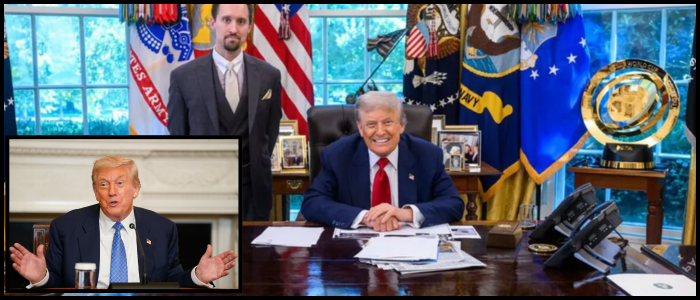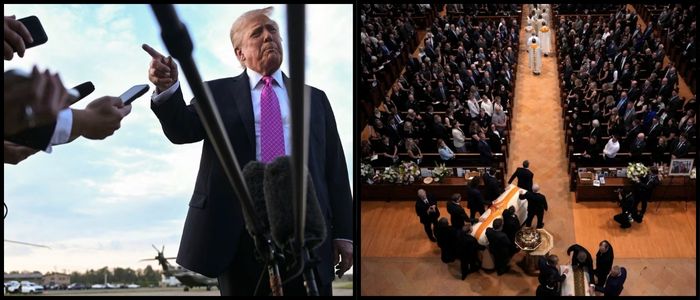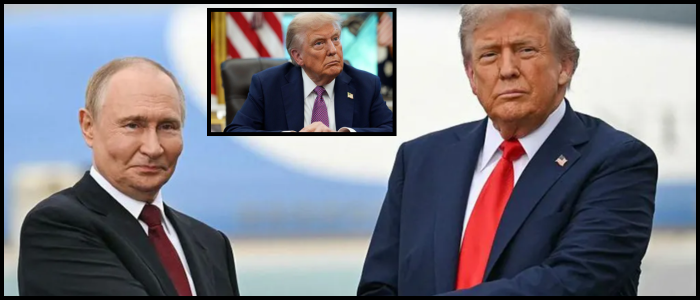It also promptly led the president to complain that May and June, whose totals were 258,000 less than previously reported, had been revised downwards.
The BLS is highly respected (in some circles, deservedly so), and the timing of this move has been viewed in some quarters as a dimension of attempts to put a broader grip on economic voice.
These critics argue that eroding the independence of institutions such as the BLS and the Federal Reserve could jeopardize the credibility that firms, investors, and politicians have in official data on which economic policy relies.
There's also a risk of long-term credibility being undermined by political interference, as former BLS Commissioner William Beach cautioned.
The longer that the employment reports continue to be weak, the more it will be suspected that they do not reflect reality but are under pressure from political leaders.
Trump aides defended the move. Kevin Hassett, the head of Trump's Council of Economic Advisers, said Thursday the president is seeking figures that are more "transparent and trustworthy," while U.S. Trade Representative Jamieson Greer argued that hiring loyal confidants should be done within his rights as described by statute. But so far, these reasons have failed to quell the panic.
A Pattern of Rewriting Reality
Fspooky: Trump firing McEntarfer is far from the only time. This is consistent with a broader pattern of denying unpleasant facts.
Who would have thought? and seeking to undermine any institution that contradicts his claims. Since his inauguration, Trump has often tried to craft a narrative at odds with reality — be it disputing the size of the crowd that attended his inauguration, attempting to sap COVID-19 testing capacity, and diluting voter confidence in election results.
By adding in the jobs data — as well as dropping gently-easing growth on the doorstep while pulling working family inflation ahead of him in a pram — these numbers bring into question his painting of roses all the way.
In dismissing those figures, it seems as though he is forming a world where only information that suits his agenda is valid.
His critics fear this might escalate. Even accurate data can lose credibility if seen as politically motivated, and if the next commissioner overseeing this is a political appointee…. Yes, good future officials may be unable to win public trust if those who are suspicious believe that they, too, have been motivated to go into politics.
That damage could even bleed abroad. History has shown that messing with official data can spell economic disaster, not least in recent crises such as Argentina and Greece — or ongoing problems in China. If any figures appear on that list, and, with economic numbers, are read as political lies, the US risks being added.
Unchecked Power and Rising Risks
Many have taken the job consolidation to mean, and this controversy has only perpetuated their opinions. Trump's move to reconfigure the intelligence community, sack scientists, clamp down on university research, and intercede in judicial and electoral matters betrayed a deepening quest to corral elements of governance.
They grew even more audacious in his second term. He has slapped tariffs on allies without consulting Congress, targeted critics in government and media with retribution, and tried to alter congressional districts to make them more favorable for Republican control.
He caused a political furor when he sought to redraw district lines in Texas.
Trump is becoming more aggressive about dissent. After Senate Democrats blocked an expedited plan to confirm more judges, he tweeted at Senate Minority Leader Chuck Schumer to "GO TO HELL!" —a common response to normal political pushback.
His behaviour is also raising concerns abroad. After a threat by Russia's Dmitry Medvedev, Trump said he had moved US nuclear submarines. Historians abroad questioned whether the timing was right with Hiroshima celebrating its 80th anniversary this month.
Critics of Trump say he is not just tearing apart the data, but impairing deep democratic institutions. The US is still a far cry from totalitarian governments such as North Korea or Myanmar, but more and more comparisons are being made to regimes run by the likes of Viktor Orbán in Hungary and Recep Tayyip Erdoğan in Turkey.
As Trump Pursues His Attacks on the Press, Some Experts Sense Long-Term Damage. A break in faith in the numbers that guide policy and investments, not only for the United States but also globally, could have extensive ripple effects economically as well as politically.
If some of this may help Trump cement his immediate reign even more, it could eventually also weaken the systems that underpin prosperity and democracy.
Politics

Trump's Jobs Data Clash Raises Fears of Political Interference

Economists, officials, and political observers were concerned by President Donald Trump's firing of Erika McEntarfer, the head of the Bureau of Labor Statistics (BLS). The firing was sudden and seemed related to the weak July job report that showed only 73,000 new jobs, undermining Trump's claims that the economy is soaring.















